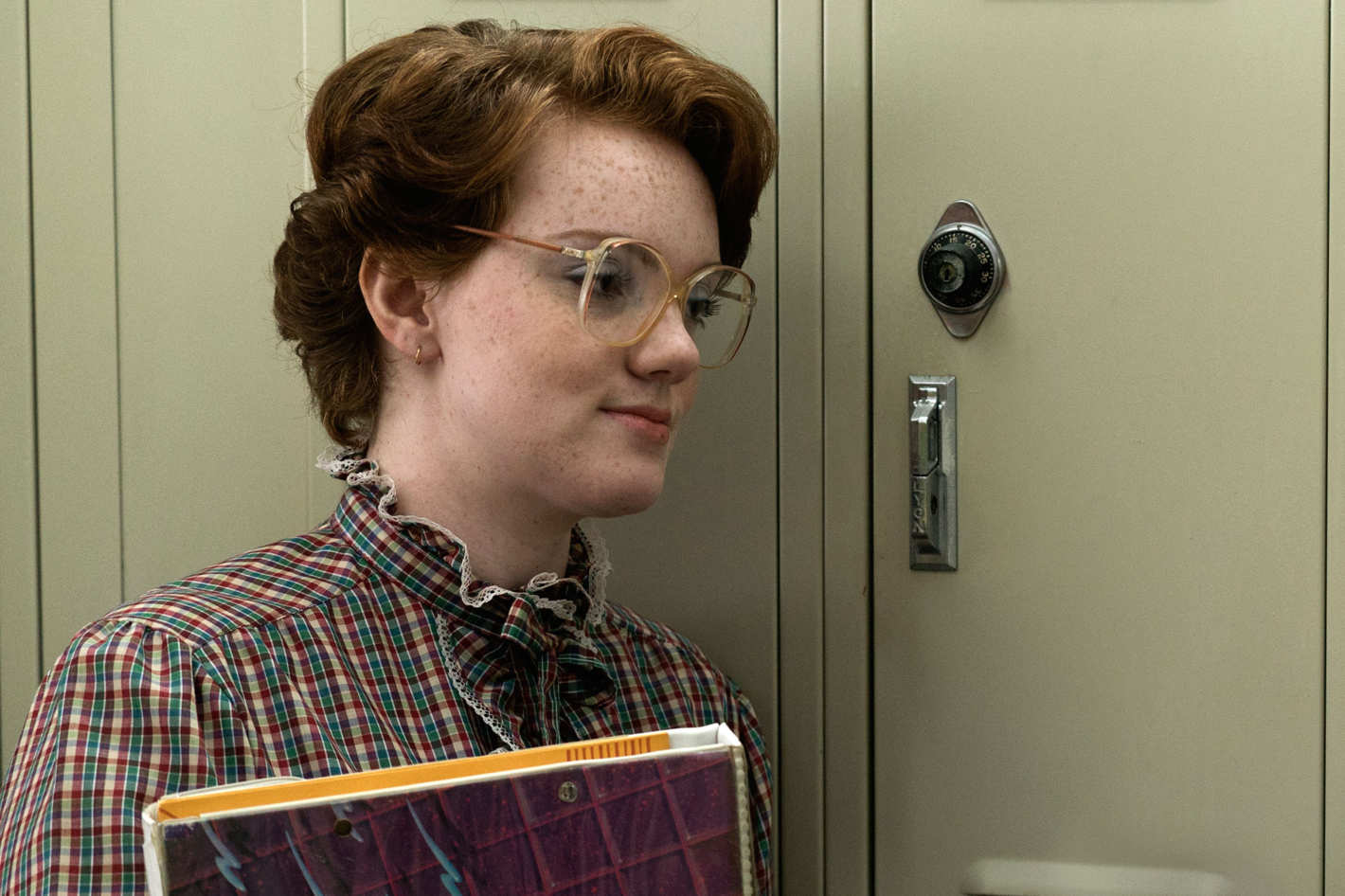Knowing your audience isn’t always a good thing.
Stranger Things 2 has a lot of subplots, a quality that I praised it for in my review last month. And this is a good thing, for the most part. But one subplot feels out of place and unnecessary. This is Nancy and Jonathan’s road trip.
Also known as the #JusticeForBarb plot.
In the first season, Barb won the hearts of a nation as the level-headed, unjustly ignored best friend. She had her own style, she was loyal, and she put up with Nancy.
And then she died.
While Will managed to survive in the Upside Down for weeks and get rescued at the last minute, Barb never stood a chance. Her death existed as a warning of just how bad the Upside Down really was, and to give the show a grittier air. Named characters die — this show may be about kids, but it isn’t for them!
But the internet revolted. People loved the show, but they were furious that Barb had been treated unfairly. The hashtag JusticeForBarb became a thing.
And the Duffer Brothers were faced with a quandary. Their show had become popular beyond their wildest imaginings, and their throwaway character had become the darling of the fanbase. What could they do?
They didn’t bring Barb back to life (thank god) but they did the next worse thing — they took the public outrage and wove it into the show. Nancy gets just as caught up as the fans in Barb’s wrongful death and, rather than fight Demodogs, she and Jonathan take off on a road trip to a completely different show about political and journalistic intrigue. They bring the lab down, Barb’s parents get a funeral, and the hashtag makes the rounds again, this time in triumph.
Call it pandering, call it audience engagement, call it fan service. Whatever name it goes by, there’s a real danger to it. Characters start behaving in ways that make sense not for themselves, but for a 2017 hive mind, a particular problem with a period piece like Stranger Things.
In an earlier article, I took issue with the show’s treatment of Will’s sexuality. The first season makes multiple intimations that Will is gay. And the second? Not a word. I claimed that the show backed off on its LGBT representation, and I still think it’s a reasonable stance.
But there’s a more likely explanation.
It’s more likely that the Duffer Brothers set out to write a script set in small town 1983, at a time and a place where the sensitive, artistic kid would get called gay. It was realistic, and it made sense for the period.
But then the show exploded, and the writers decided to make their script more palatable to a modern audience. So they backed off on the homophobic language and left a conspicuous void — a void filled by an oddly sexless Will and a single use of the word “faggot” that, for its sheer novelty, now carries a whole season’s worth of implications.
It didn’t necessarily make the show better or worse, but it did change its tone midstream, and the difference is noticeable.
Even some of the most enjoyable aspects of the new season — the feel-good Snow Ball finale, Steve and Dustin’s friendship — feel tailor-made to please. I’ll be the first to say that Steve is my new favorite character and I love watching him, especially interacting with Dustin, but his transformation from generic jerk boyfriend to parent of the year can’t help but feel a little forced.
Especially since apparently in early drafts of the first season, Steve forced himself on Nancy.
That was dropped before release, and it’s the writers’ prerogative to change things drastically from draft to draft, but it still speaks to a series-wide issue. Stranger Things was conceived to be one thing, with sensitive kids being called fags, dowdy best friends dying, and teenagers raping their girlfriends. Now it’s morphing into something new, something more audience-friendly. And each aspect is morphing at a different rate.
Throw in about twenty prominent Eggo product placements, and you get a lumbering giant that, while fun to watch, is maybe too quick to change itself to please, and is becoming an unruly mishmash as a result.

